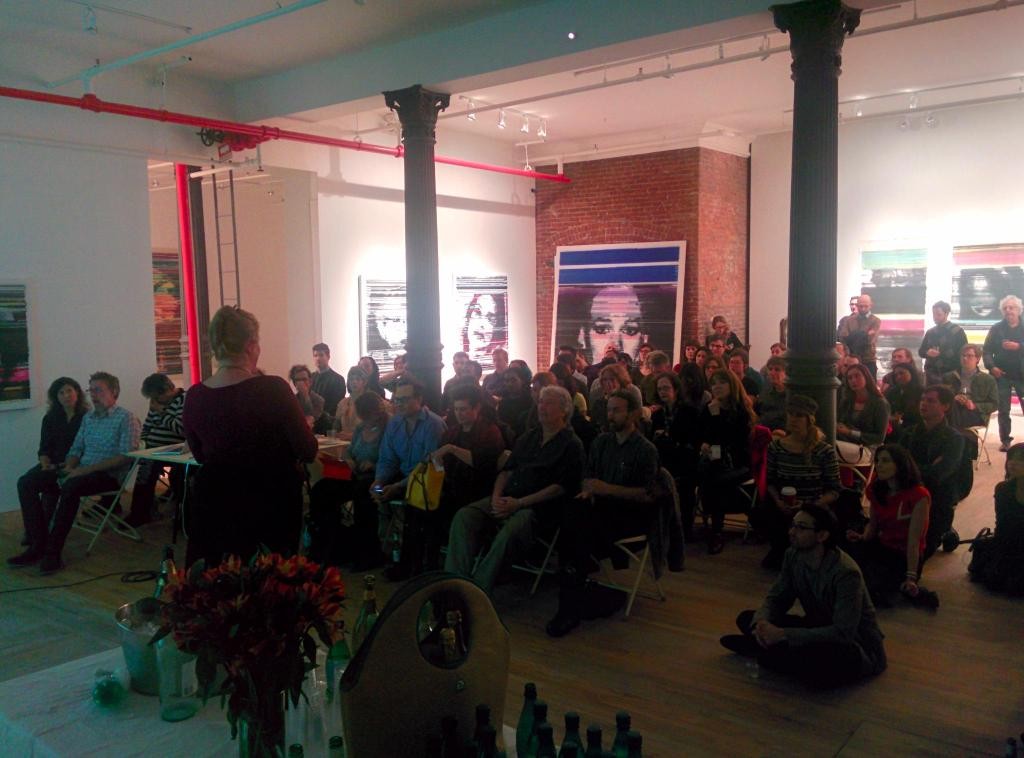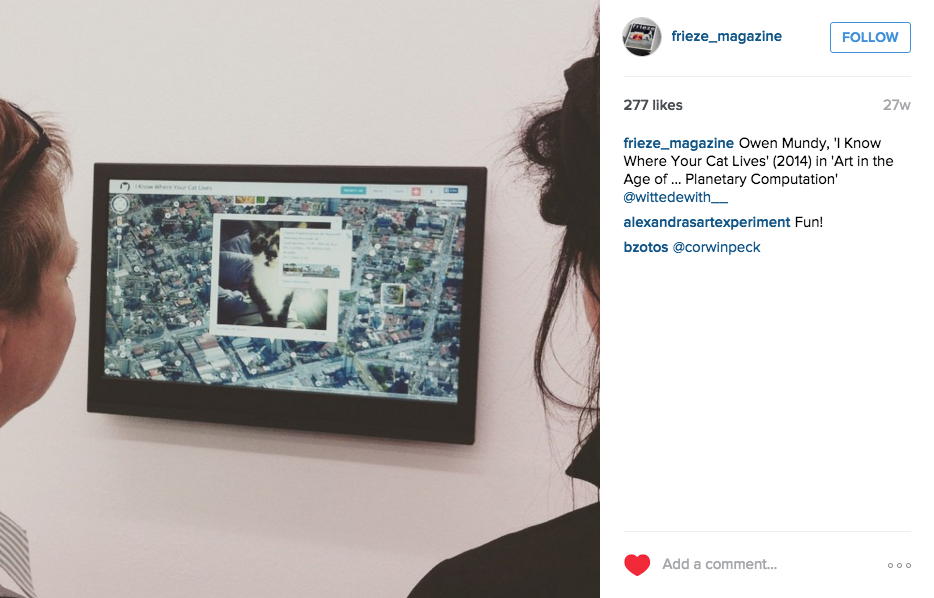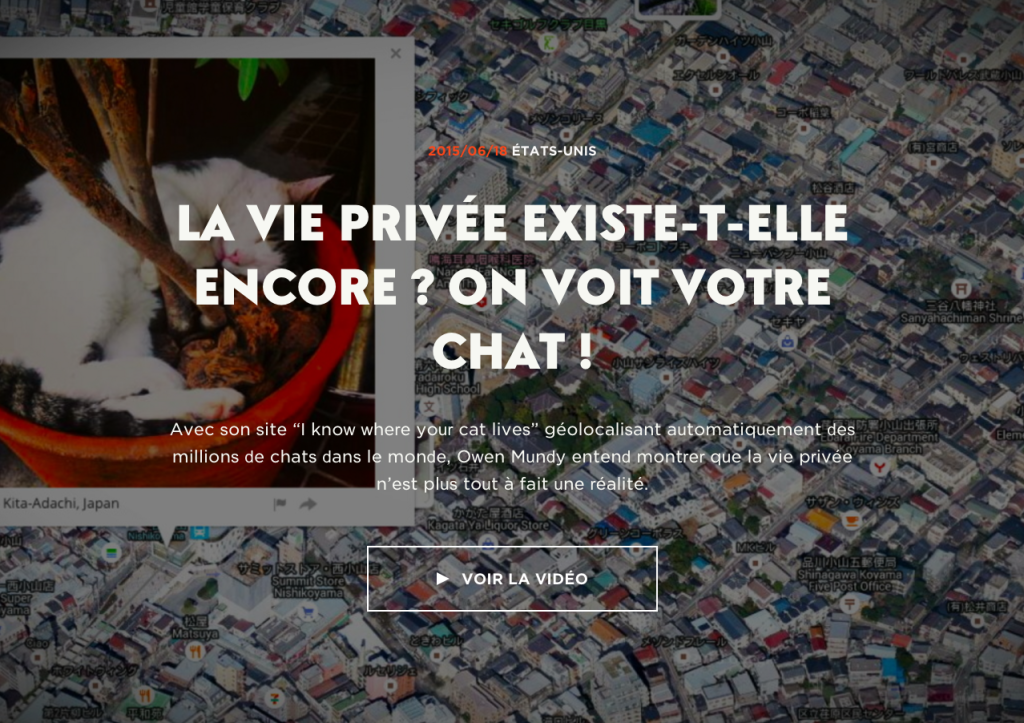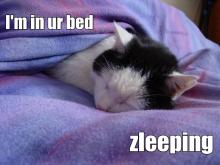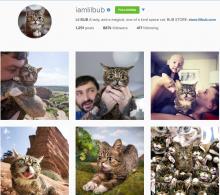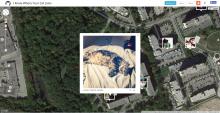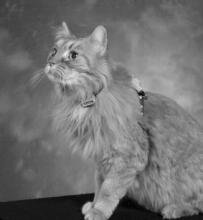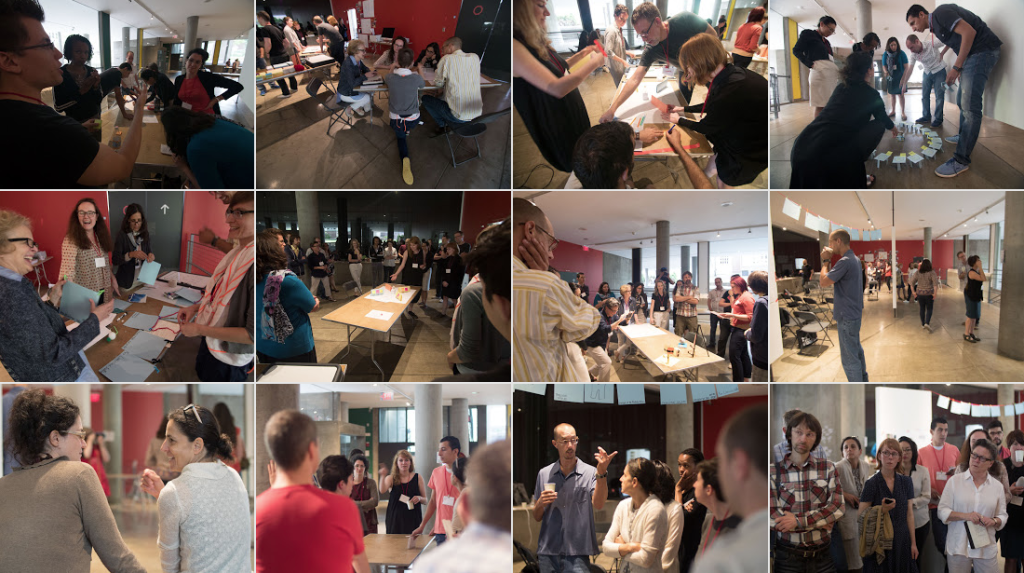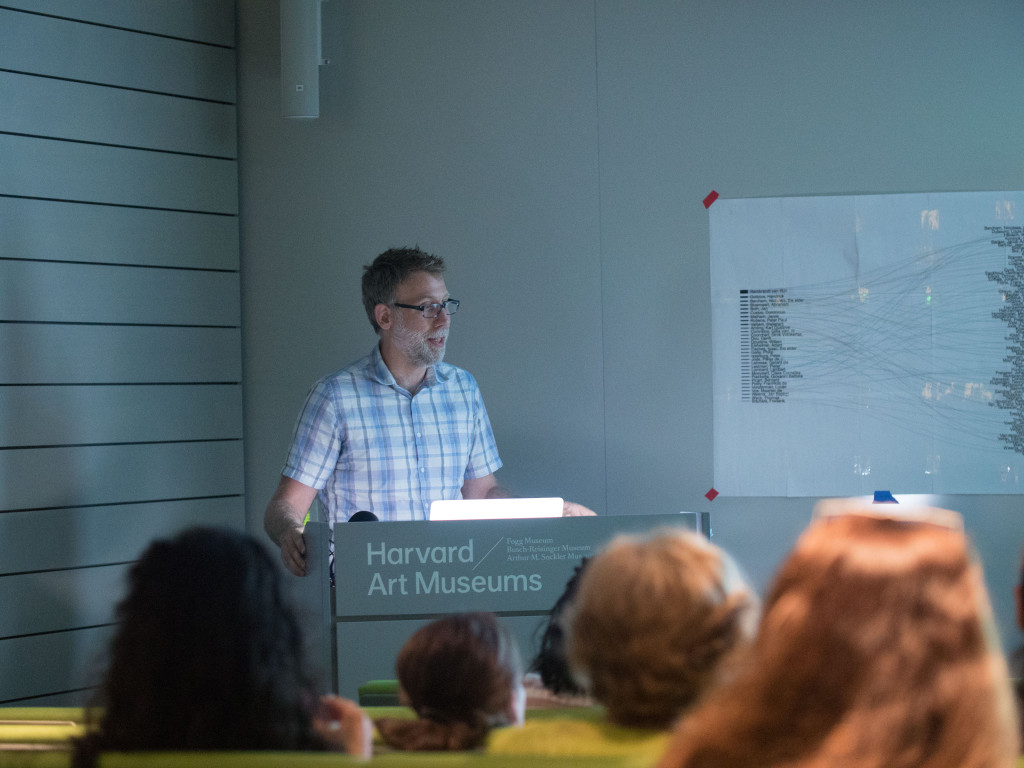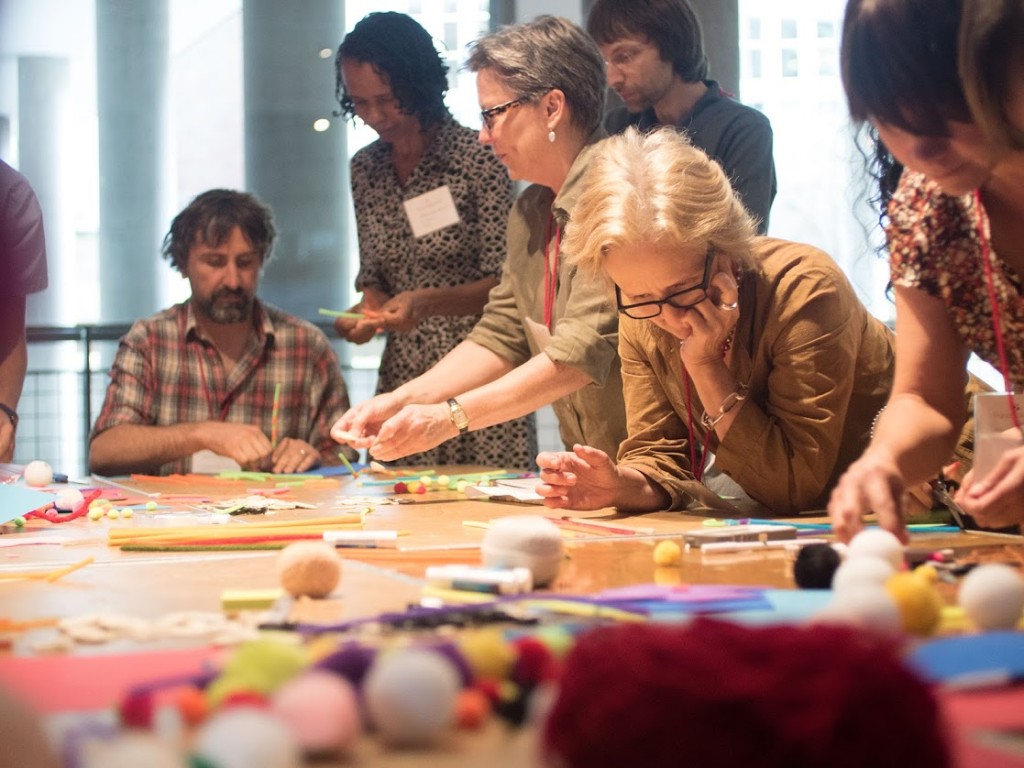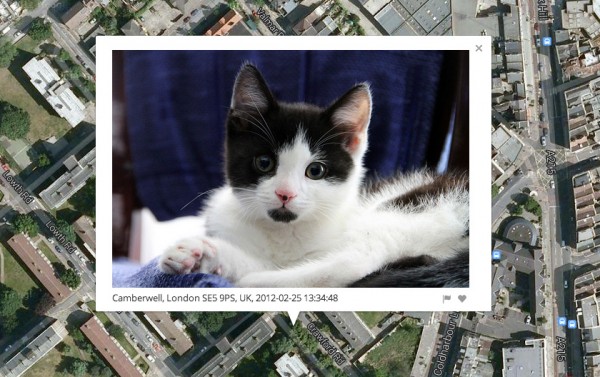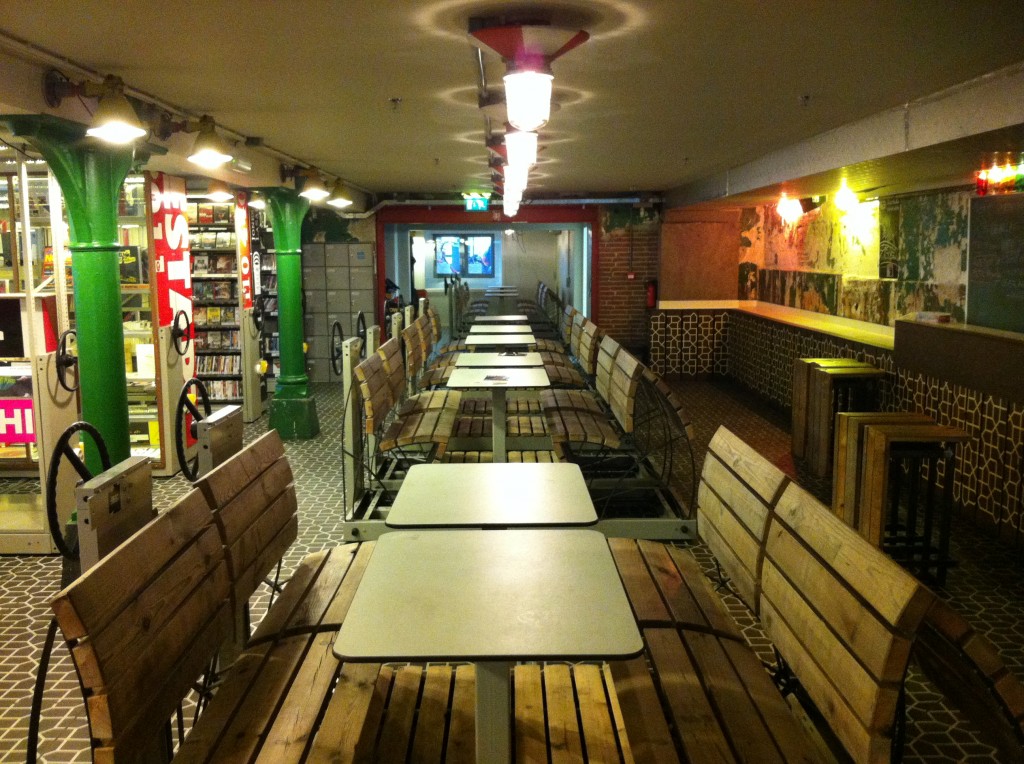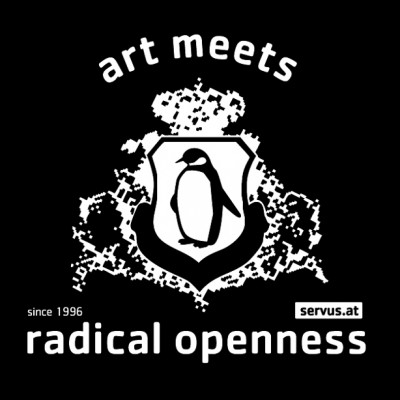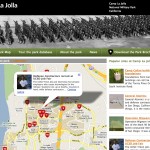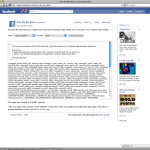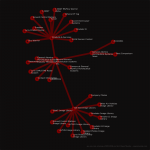I Know Where Your Cat Lives will be featured at the new exhibition, Big Bang Data, opening today at Somerset House in London. This is a traveling exhibition curated by Olga Subirós and José Luis de Vicente.
Emails, selfies, shopping transactions, Google searches, dating profiles: every day we’re producing data in huge quantities. Our online activity, alongside that of businesses and governments, has led to a massive explosion – a ‘Big Bang’ – of data.
This radical shift in the volume, variety and speed of data being produced, combined with new techniques for storage, access, and analysis, is what defines the proliferation of data. It is radically reshaping our world and is set to revolutionise everything we do.
Data today gives us new ways of doing things: from scientific research to business strategy, politics to social interaction, our new data-driven society that has the potential to be more fair, stable, and efficient and yet it also created a tools for unprecedented mass surveillance and commodification. Data access and usage rights, along with the value they comprise, are at the heart of many concerns.
Big Bang Data explores the issues surrounding the datafication of our world through the work of artists, designers, journalists and visionaries. As the data explosion accelerates, we ask if we really understand our relationship with data, and explore the meaning and implications of data for our future.
The exhibition, which runs Dec 3, 2015—Feb 28, 2016, includes over 50 works by artists, designers and innovators, comprising also a number of authors I’ve long admired like:
Brendan Dawes, Charles Joseph Minard, David McCandless, Ellie Harrison, Eric Fischer, Erica Scourti, Eva and Franco Mattes, Fight for the Future and Demand Progress, Florence Nightingale, Forensic Architecture, Future Cities Catapult, Heather Dewey-Hagborg, Horst Ademeit, IF, Ingo Günther, Ingrid Burrington and Dan Williams, Interaction Research Studio, Goldsmiths, ITO World, Jaime Serra, James Bridle, John Snow, Jonathan Harris, Jonathan Minard, Julian Oliver, Julie Freeman, Kamel Makhloufi, Kiln, Laura Poitras, Lev Manovich and Moritz Stefaner, Lisa Jevbratt, Lise Autogena and Josh Portway, mySociety, Nesta, Nicholas Felton, Open Knowledge, OpenCorporates, Owen Mundy, Paolo Cirio and Alessandro Ludovico, Philipp Adrian, Rafael Lozano Hemmer, Ryoji Ikeda, Safecast, Stefanie Posavec and Giorgia Lupi, Tekja, TeleGeography, The Guardian, The Long Now Foundation, Thomson and Craighead, Timo Arnall, Umbrellium, William Elford, and Zach Blas
Some press is emerging already and I’ll add more images as the show opens:
- I Know Where Your Cat Lives: Feline photo mapping website exposes how easy it is to track the owner’s location by Nick Clark, The Independent
- How uploading pictures of your pet cat can breach your privacy: Professor reveals that uploading pictures of your favourite feline gives stalkers a chance to pinpoint where YOU are by Thomas Burrows The Daily Mail
- The Data of Our Lives, Illustrated by Linda Poon, Citylab (The Atlantic)
- London’s Dazzling “Big Bang Data” Exhibition Reveals the Ugly Truths of Our Digital Lives by Matilda Battersby, ArtNet News
- Big Bang Data at London’s Somerset House by Cajsa Carlson, Cool Hunting
- Big Bang Data, Somerset House, review: ‘alarming’ by Mark Hudson, The Telegraph
- Big Bang Data Domus
- Big Bang Data offers worries, wonders and some cats by Alun Anderson, New Scientist
- Review: Making Big Data visible and tangible
By Richard Beales, Reuters
Meanwhile time for a…
2015 Update on IKWYCL
Just over a year ago I launched I Know Where Your Cat Lives and it immediately went viral. I’m gracious for all the positive attention the project has received, and even more so for the reach it generated. In addition to a notable influence on research and dialogue around metadata security, the impact for individuals has been significant. Over 25% of owners of cat photos from the original sample have removed or increased privacy on their images and, even more noteworthy, nearly 60% of users have chosen to leave their photos public but have manually removed their location data from the images they shared, underlining the importance of this project to experts in the field, as well as everyone who uses social media.
Since then I’ve found time to evaluate the project’s impact and begin to work on the conclusion. The site I shared was only a prototype, containing just one million images from the at least 15 million tagged with #cat on social media. Thanks to everyone at FSU’s Research Computing Center, and to support from Dr. Ostrander at the FSU Office of Research, I’ve made great progress in collecting and visualizing the millions of images that users have unknowingly uploaded with geolocation data. With this exhibition at Somerset House I’m uploading another large dataset to bring the total number of cats to just under 5.4 million!
The final project will include expanding the data set to run in real time, as well as a mobile app called “Like Tinder for Cats,” and a book project which contextualizes and documents the research, the technology I developed, and most importantly, the impact of this ephemeral web-based work on industry, academia, and culture. I’m also thankful for the opportunity to work with my longtime colleague and amazing writer, Shana Berger, on the writing for the project, the first essay of which is currently under review.
Highlights from the last year
The IKWYCL prototype website has already received press in Motherboard/Vice Magazine, The New York Times, Time Magazine, The Atlantic, Wired Magazine, MSNBC, NPR, and many others. It has been featured in several international exhibitions including the Tempo Documentary Festival in Stockholm, Sweden, and numerous others like:
I Know Where Your Cat Lives was nominated for a 2014 IDFA DocLab Award for Best Digital Storytelling at the International Documentary Film Association (IDFA) Festival. While ultimately the amazing Serial podcast took the prize, I was thrilled to be nominated among many great interactive documentary works including Miranda July’s conceptual app Somebody. Read more about IDFA DocLab in this review on We Make Money Not Art.
I was also excited to take part in the festival, not only as a presenter, but a mystery guest on the evening of my talk. Previously I had shared a selection of my Google searches with a team of experts who led a quiz style analysis of my search history, complete with an artist who did a rendering of what my family looked like according to my searches, and a chef who prepared food for the audience based on what my data revealed.
Mystery guest revealed: @owenmundy maker of I Know Where Your Cat Lives. Drawing by Rafaella based on his Websearches pic.twitter.com/aR8JdOaKXb
— IDFA DocLab (@DocLab) November 22, 2014
That same month found me giving a presentation on my work during the L2 Forum at the Morgan Library in New York City.
While in NYC I also spoke at the LISA (Leaders in Software and Art) Salon at Postmasters Gallery
This is what the LISA salon looked like at @PostmastersNYC and it was awesome! @owenmundy @c_tl_n pic.twitter.com/wOZiZs8mNX
— LISA (@softwareandart) November 25, 2014
In May 2015 it was featured among works by Trevor Paglen and Jason Salavon in the exhibition Art In The Age Of… Planetary Computation, at the Witte de With Center for Contemporary Art in Rotterdam curated by Adam Kleinman. This was followed by an exhibit on interactive storytelling and the future of digital media at the Polish National Audiovisual Institute (NInA) in Warsaw curated by Anna Desponds.
Finally, I was very honored to be interviewed this summer for two separate European journalism projects around the cultural impact of technology.
Silvia Font published an extensive discussion which included many of my previous works for El Diario. The interview, Las fotos de tu gato en internet ponen en jaque tu privacidad (in Spanish), was part of a series that included interviews with Laura Poitras and Jacob Appelbaum.
And, Charles-Henry Groult interviewed me for an ARTE web special about people shaping the culture and politics of the internet. The interview is in English but the interface elements are only in French and German
The dialog with these professionals was really gratifying. I’m so glad to have created something that is so thought-provoking, has proven impact, and yet is extremely fun to use. Thanks to everyone for the support :-)





